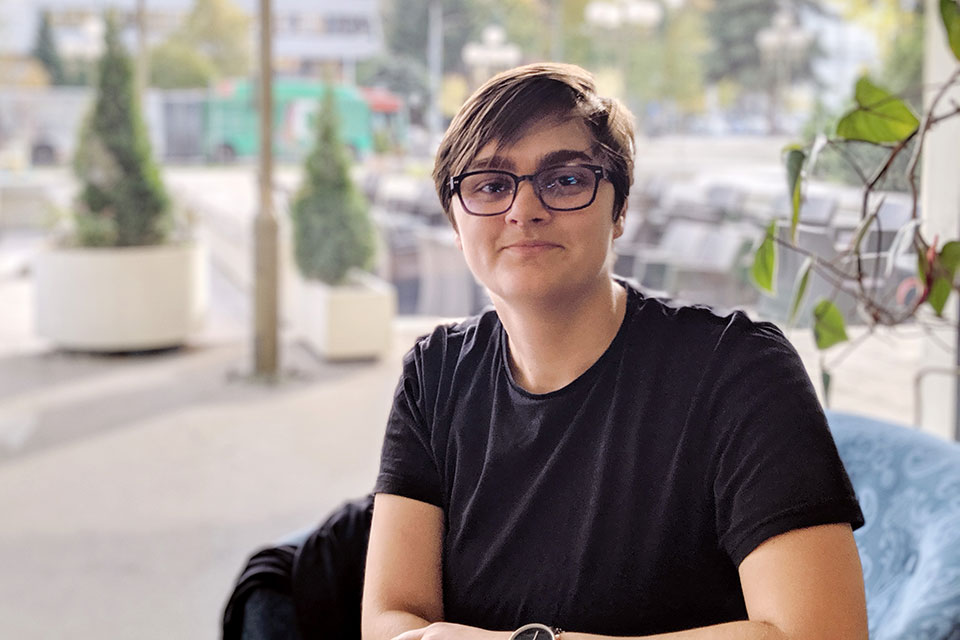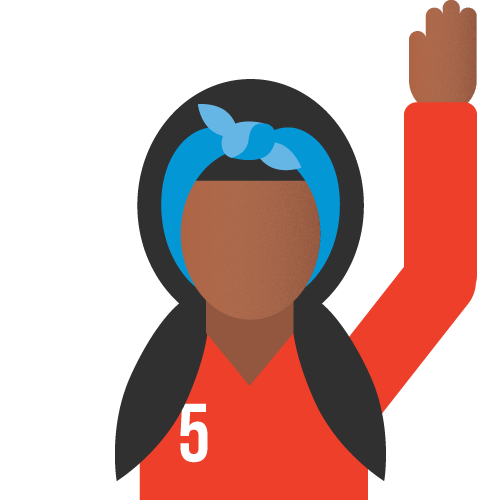I am Generation Equality: “I am a child born out of wartime rape”
Billions of people across the world stand on the right side of history every day. They speak up, take a stand, mobilize, and take big and small actions to advance women’s rights. This is Generation Equality.Date:


I am Generation Equality because…
“I decided to find other children in similar situations, and I connected with them.
Three actions you can take to stand against rape culture:
- If you meet someone who is different, make sure s/he feels included.
- Learn more about the different types of families that exist and speak up when you witness discrimination.

- Share this story on social media using the hashtags #OrangeTheWorld #GenerationEquality to raise more awareness about rape culture.
I am a child born out of rape during the conflict in Bosnia and Herzegovina. Twenty-six years later, both my mother and I still live with the stigma.
When I was a child we had to move all the time because the other children would bully me. I did not know the truth—my mum kept silent because she wanted to protect me and thought I would, like the rest [the people around her], feel ashamed of her and reject her. I was in high school when one of my teachers asked me what my father’s name was, and I started doing some research since I didn’t know who my father was. I ended up finding a very detailed description of what happened to my mother in a research paper.
I still remember the pain I felt in that moment, as though I was the biggest trigger of her suffering. But confronting the truth brought us closer.
Connecting with peers to deal with the pain
I decided to find other children in similar situations and I connected with Dr. Amra Delić, who was conducting a study on this subject. In 2015, 15 of us met up for the first time. For three hours nobody said a word. We just sat there and realized, for the first time, that we were not alone.
“We do not want to be invisible; we want to be treated equally.”![]()
Learning the truth [about my mother’s rape] also motivated me to study psychology, because I wanted to help my mother. She finally started therapy a few months ago.
It was only in 2018 that my mother agreed with us about talking about this publicly, and then the real fight started.
My association, Forgotten Children of War, had been working in the shadows for a few years. Now I am really marked as a child born out rape, since people recognize me.
Sometimes I feel tired, but I do not regret it.
The fight for equality is not over
My association is working on a campaign so that we are recognized as a vulnerable group entitled to social protection services. For instance, the children of soldiers who fought or died at war have access to education grants. We also need access to healthcare, psychological and legal support.
In my University diploma, they were going to write an “X” next to my name because I don’t know the name of my father. This is a common practice in Bosnia and Herzegovina. We are lobbying to ban this tradition. We do not want to be invisible; we want to be treated equally.”
Ajna Jusić, 26 years old, is the President of the Forgotten Children of War Association, a psychologist and a feminist from Sarajevo, Bosnia and Herzegovina.